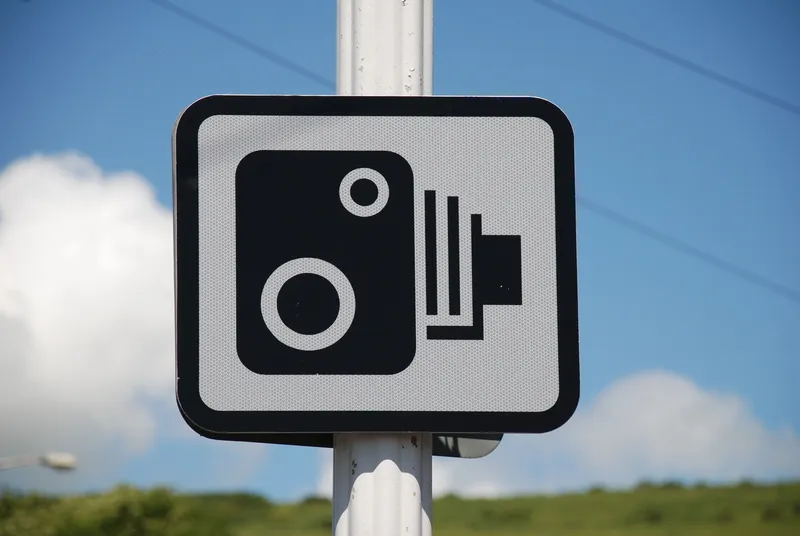With 16 million UK motorists set to take to the roads this Easter weekend, a new European survey finds that risky driving habits and failure to respect the rules are on the increase.
The annual survey carried out for Vinci Autoroutes Foundation for Responsible Driving by IPSOS examined the behaviour of drivers from ten European countries. Each year, this survey draws up an inventory of driving practices and trends, allowing closer targeting of methods to prevent irresponsible driving and promote safer ro
April 2, 2015
Read time: 3 mins
With 16 million UK motorists set to take to the roads this Easter weekend, a new European survey finds that risky driving habits and failure to respect the rules are on the increase.
The annual survey carried out for5973 Vinci Autoroutes Foundation for Responsible Driving by IPSOS examined the behaviour of drivers from ten European countries. Each year, this survey draws up an inventory of driving practices and trends, allowing closer targeting of methods to prevent irresponsible driving and promote safer roads.
The survey results found that European drivers persist in engaging in risky driving behaviour, including going above the legal speed limit, using mobile phones and forgetting to wear their seatbelt. Survey results also indicate that while drivers tend to be satisfied with their own behaviour behind the wheel, they are very critical of their European neighbours.
Europeans are currently less optimistic that number of fatal road accidents will decline than they were in 2014. Only 55 per cent of respondents polled believe that the number of people killed in traffic accidents will continue to decline significantly in coming years (61 per cent in 2014).
Overall, 62 per cent of European drivers believe that driving under the influence of alcohol or drugs is the main cause of fatal road accidents, but 12 per cent of the respondents admit they would take to the wheel despite having exceeded the authorised alcohol limit.
In contrast to the overall results, 59 per cent of UK drivers believed that not paying attention, for example using a mobile phone while driving, is the main cause of fatal road accidents, followed by driving under the influence of alcohol or narcotics (46 per cent), speeding (46 per cent) and drowsiness (five per cent).
42 per cent of UK motorists considered sending text messages while driving to be significantly more risky than respondents in nine other European countries.
Nine out of ten Europeans admitted exceeding the speed limit by a few miles per hour, a practice that increased in all countries polled in 2014, notably UK (92 per cent, +3 points) Sweden (95 per cent, +8 points) and Belgium (94 per cent, +8 points).
Europeans surveyed said that the most responsible drivers are from Sweden, followed by Germany, UK and the Netherlands. The least responsible drivers are from Italy, Greece and Poland.
Responding to the results of the survey, Neil Greig,6187 Institute of Advanced Motorists’ director of policy and research said, "Drivers are right to be pessimistic about road safety. After many years of falls 2014 looks likely to deliver an increase in deaths on the road. The survey is also correct to highlight behaviour issues as the biggest problem. They can only be addressed by overhauling how we teach new drivers and encouraging a continuing personal development approach to driving skills."
The annual survey carried out for
The survey results found that European drivers persist in engaging in risky driving behaviour, including going above the legal speed limit, using mobile phones and forgetting to wear their seatbelt. Survey results also indicate that while drivers tend to be satisfied with their own behaviour behind the wheel, they are very critical of their European neighbours.
Europeans are currently less optimistic that number of fatal road accidents will decline than they were in 2014. Only 55 per cent of respondents polled believe that the number of people killed in traffic accidents will continue to decline significantly in coming years (61 per cent in 2014).
Overall, 62 per cent of European drivers believe that driving under the influence of alcohol or drugs is the main cause of fatal road accidents, but 12 per cent of the respondents admit they would take to the wheel despite having exceeded the authorised alcohol limit.
In contrast to the overall results, 59 per cent of UK drivers believed that not paying attention, for example using a mobile phone while driving, is the main cause of fatal road accidents, followed by driving under the influence of alcohol or narcotics (46 per cent), speeding (46 per cent) and drowsiness (five per cent).
42 per cent of UK motorists considered sending text messages while driving to be significantly more risky than respondents in nine other European countries.
Nine out of ten Europeans admitted exceeding the speed limit by a few miles per hour, a practice that increased in all countries polled in 2014, notably UK (92 per cent, +3 points) Sweden (95 per cent, +8 points) and Belgium (94 per cent, +8 points).
Europeans surveyed said that the most responsible drivers are from Sweden, followed by Germany, UK and the Netherlands. The least responsible drivers are from Italy, Greece and Poland.
Responding to the results of the survey, Neil Greig,








